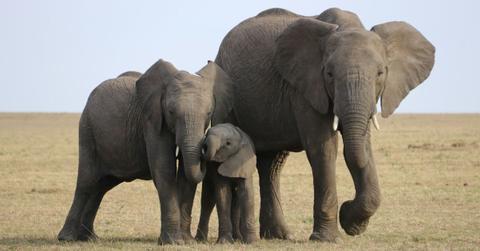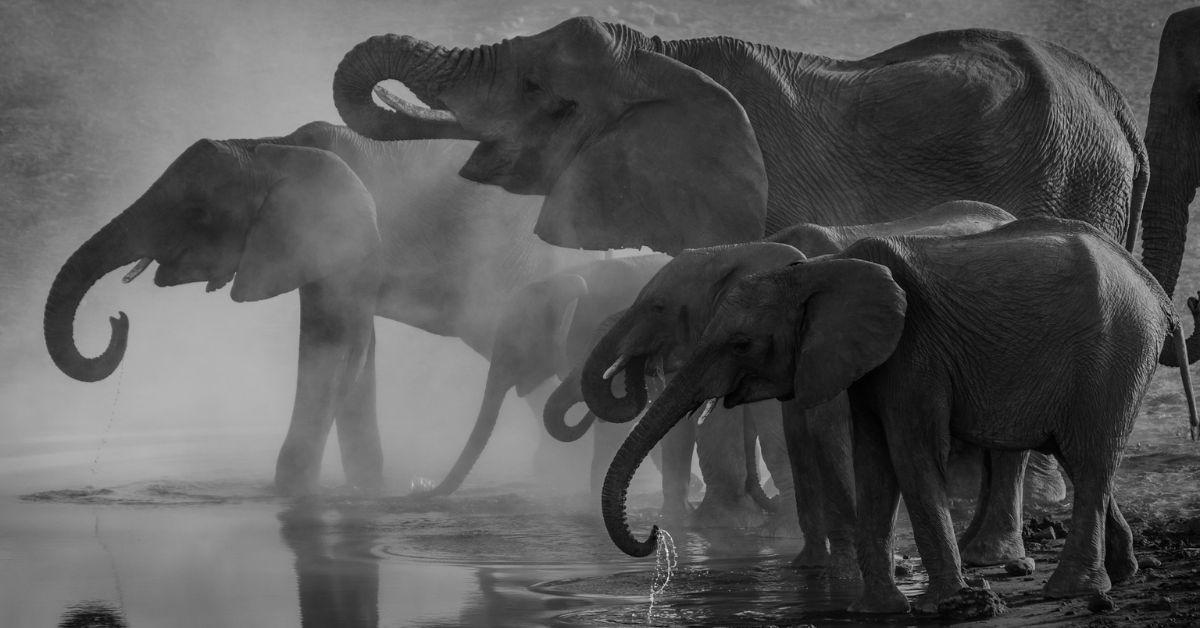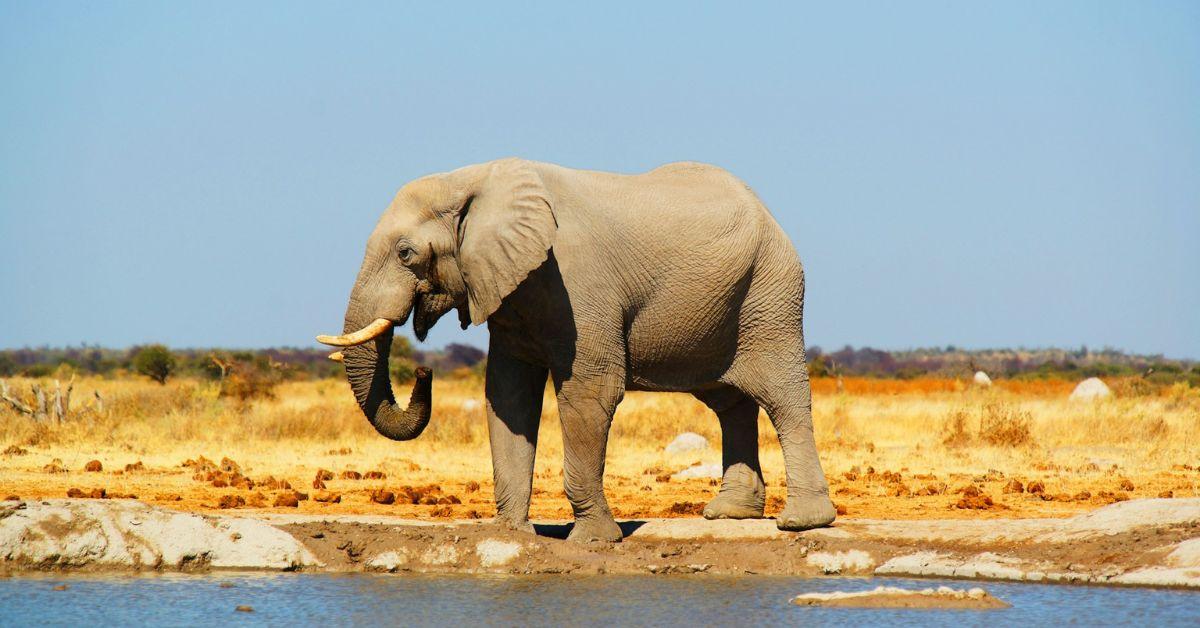Trunk Chats: Scientists Discover African Elephants Call Each Other by Name

African elephants reportedly have unique names for each other, scientists say.
Elephants Have Unique Names for Each Other

Researchers say they determined elephants have unique 'names' for each other.
Researchers in Colorado say African elephants have unique names for each other, and they learned how to call the elephants by name.
Scientists at Colorado State University, ElephantVoices, and Save the Elephants, a research and conservation organization based in Kenya, used machine learning to identify name-like components in elephant vocalizations, which identify the intended recipient of their call, according to a new study published in Nature Ecology and Evolution.
When the researchers played back recordings of the elephant calls, elephants responded to hearing their "name" by calling back or approaching the speaker.
Researchers say that addressing each other with name-like calls is a rare ability among non-human animals. Even then, it often involves simply imitating the signature sound of the recipient, which is not the case with elephants.
Not Imitating the Signature Call of the Addressee

During their research, they determined elephants aren't just imitating the signature call of the addressee.
“Dolphins and parrots call one another by 'name' by imitating the signature call of the addressee,” lead author Michael Pardo, who conducted the study as an NSF postdoctoral researcher at CSU and Save the Elephants, said in a statement. “By contrast, our data suggest that elephants do not rely on imitation of the receiver's calls to address one another, which is more similar to the way in which human names work.”
Known as arbitrary communication, in which a sound represents an idea without imitating it, it is considered a next-level cognitive skill.
"If all we could do was make noises that sounded like what we were talking about, it would vastly limit our ability to communicate,” said co-author George Wittemyer, a professor in CSU’s Warner College of Natural Resources and chairman of the scientific board of Save the Elephants.
Elephants are highly communicative and socially complex, with distinct family units, larger social groups, and an even larger clan structure. Their complex social networks, much like humans', likely led to the need for naming individuals with abstract sounds, researchers say.
Elephant Calls Convey a Lot of Information

Elephants are delivering a lot of information in their calls, researchers say.
- What Lies Beneath: NASA Scientist Believes Aliens May Have Found 'Perfect' Hiding Spot in Earth's Oceans
- Global Threat: Russia Insider Warns West of 'World War Using Nuclear Weapons' Amid Escalating Support for Ukraine
- Countdown to Disaster? Ex-NATO Official Warns Russia, Iran and China Could Wage WWIII in Just Years
"It's probably a case where we have similar pressures, largely from complex social interactions,” Wittemyer said. “That's one of the exciting things about this study, it gives us some insight into possible drivers of why we evolved these abilities.”
Elephant calls convey a lot of information, including the caller's identity, age, sex, emotional state and behavioral context, according to researchers. They also use their vocalizations, across a broad frequency spectrum that extends beyond human hearing, coordinate group movements over large distances.
Kurt Fristrup, a research scientist in CSU’s Walter Scott, Jr. College of Engineering developed a technique for processing elephant calls that detects subtle differences in call structure. Fristrup and Pardo, who is now at Cornell University, then trained a machine-learning model to identify which elephant a call was addressed to.
“Our finding that elephants are not simply mimicking the sound associated with the individual they are calling was the most intriguing,” Fristrup said. “The capacity to utilize arbitrary sonic labels for other individuals suggests that other kinds of labels or descriptors may exist in elephant calls.”
Prank Calls for Elephants

The elephants in the study eventually determined the name calls were more like 'prank calls.'
When researchers played back recordings of the elephants' names, they responded “energetically” to recordings of their family or friends calling them. They also didn't react when another elephant's name was called.
When the elephants responded, they discovered it was a "prank call."
“They were probably temporarily confused by the playback but eventually just dismissed it as a strange event and went on with their lives,” said Pardo.
The researchers also find that like humans, elephants don't always use each other's names in conversation. The names are most often used in calls over longer distances, or when adults were addressing calves.
No Microphones Here

The researchers said it's hard to determine if elephants for other things since they can't speak into a microphone.
Scientists say more research is needed to learn whether the elephants have specific names for other things, such as food, water or places.
"Unfortunately, we can't have them speak into microphones," Wittemyer said. Despite the difficulties in collecting the data, the possibility that humans may one day be able to communicate with elephants could be a boon for their conservation.
"It's tough to live with elephants, when you're trying to share a landscape and they're eating crops," Wittemyer said. “I'd like to be able to warn them, ‘Do not come here. You're going to be killed if you come here.’”
TMX contributed to this report.
Become a Front Page Detective
Sign up to receive breaking
Front Page Detectives
news and exclusive investigations.
